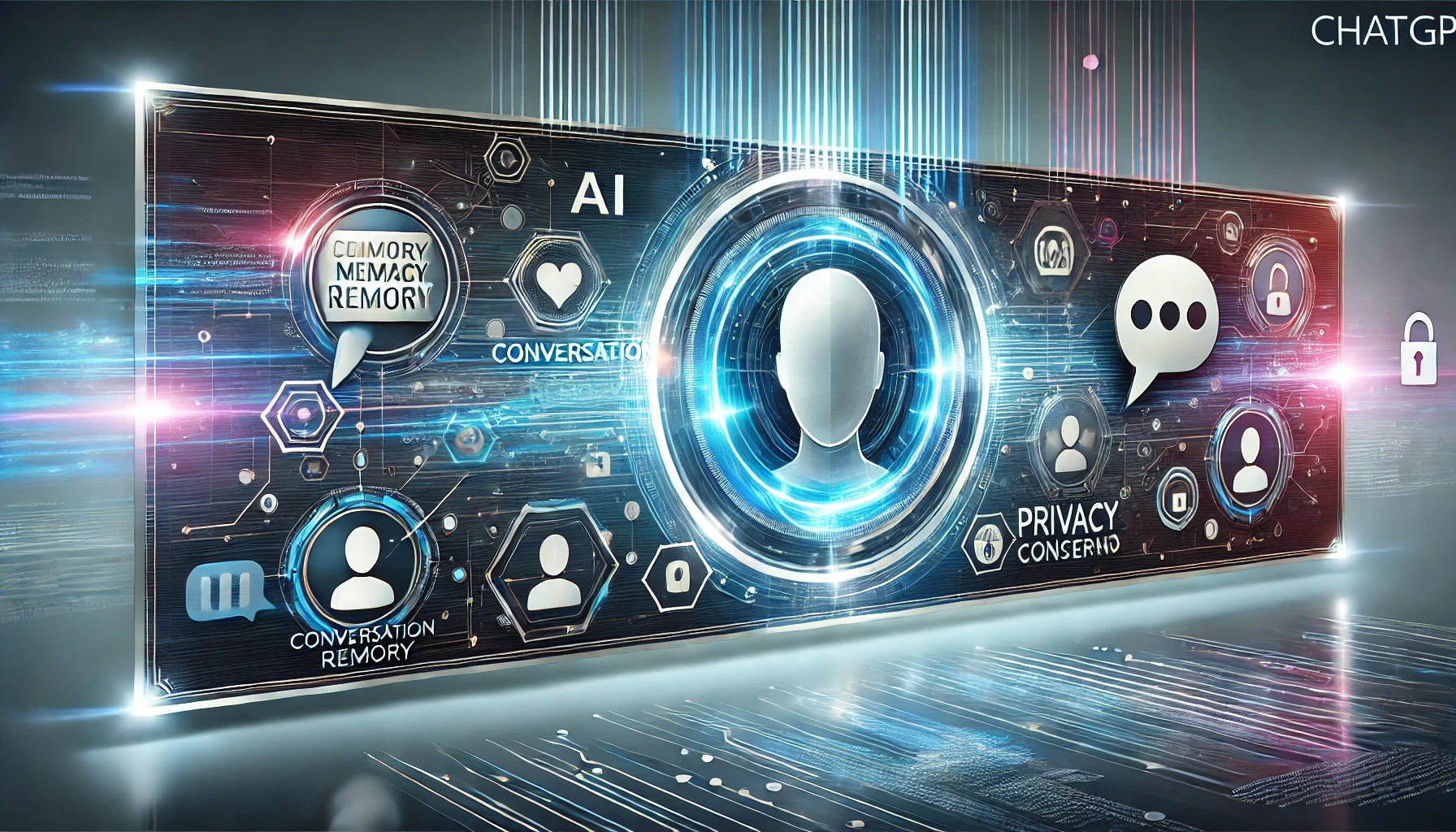How ChatGPT Handles Your Conversation History: Privacy and Memory in AI Interactions
In the age of artificial intelligence, privacy concerns have become a hot topic. With AI platforms like ChatGPT becoming increasingly popular for day-to-day conversations, it’s only natural to ask questions about how your information is stored, used, and remembered. Recently, a Reddit user sparked an online debate by claiming that ChatGPT initiated a conversation based on previous interactions, raising concerns about how AI handles conversation memory. This blog will explore ChatGPT’s conversation memory, privacy concerns, and how users can control their data when using this tool.
What is ChatGPT’s Conversation Memory?
Artificial intelligence, especially conversational models like ChatGPT, is built to create seamless user interactions. To make these interactions meaningful, AI models sometimes recall past conversations. ChatGPT conversation memory refers to the AI’s ability to use information from previous interactions to craft more personalized responses. However, unlike a human memory, AI doesn’t autonomously “remember” but instead processes data contextually within a session.
For instance, if you’ve discussed a particular topic with ChatGPT before, it may recall that topic to provide more relevant and insightful information in your next query. This function can enhance user experience by making responses feel more personalized. Nevertheless, this also raises privacy concerns. Many users are left wondering: how much of our AI conversation history is actually retained, and can this data be leaked?
Privacy Concerns: Does ChatGPT Retain Your Information?
One of the most frequently asked questions about conversational AI is related to ChatGPT privacy concerns. When you interact with the model, does it store your information indefinitely, and what happens to the data it processes?
According to OpenAI, conversations with ChatGPT are stored temporarily to improve the service and for quality control. However, OpenAI has emphasized that it anonymizes the data before using it for model training, thus ensuring that personal identifiers are removed. Despite this, concerns persist. After all, once data is stored, there is always a risk of potential ChatGPT user conversation leaks.
In fact, a few Reddit users have even claimed to experience incidents where ChatGPT started conversations by referencing past interactions without the user prompting it. These reports have led many to question whether ChatGPT privacy settings are sufficient and if users can control how their data is managed.
Reddit Discussions: ChatGPT and AI Interactions
Reddit is often a space for AI enthusiasts and everyday users alike to share their experiences. Recently, several threads have discussed ChatGPT’s ability to remember prior interactions. For instance, a Reddit user reported that ChatGPT started a conversation asking about their first day at school based on an earlier conversation(TradingView)(Cointelegraph).
This sparked a larger conversation on Reddit ChatGPT interactions, with other users chiming in about similar experiences. These discussions underline the fact that users are becoming more aware of how AI manages personal information. The Reddit AI interactions raise important questions: Are these isolated incidents, or is ChatGPT programmed to retain this information longer than expected?
The September 2024 ChatGPT Upgrade and What It Means
With the release of the ChatGPT upgrade September 2024, OpenAI has introduced several new features that could affect how the model handles conversation memory. This upgrade includes enhanced functionalities like ChatGPT conversation starter, where the AI can now initiate certain conversations based on previous interactions or contextual relevance. While this makes ChatGPT seem more intuitive and interactive, it further fuels privacy concerns.
For example, if you’ve asked the AI about health symptoms, you may be surprised to find it asking about your well-being in a subsequent conversation. This can feel both personal and invasive, making it essential for users to understand how to manage their ChatGPT privacy settings.
Managing Your ChatGPT Privacy Settings
As AI technology continues to evolve, so do the tools available to users to manage their privacy. OpenAI offers several features that help users control how their data is stored and processed. By diving into your ChatGPT privacy settings, you can choose to delete your chat history or disable certain data-sharing features. Here are a few actionable steps to protect your data:
- Clear your conversation history: You can manually clear past conversations by accessing your settings in the ChatGPT interface. This ensures that no old data is used in future responses.
- Disable conversation memory: OpenAI allows users to disable memory features, meaning that once a session ends, no information from that session will be stored.
- Limit sensitive conversations: Avoid discussing highly sensitive information through AI platforms if you are concerned about privacy risks.
Taking control of these settings can mitigate the risk of a ChatGPT user conversation leak.
What Happens When AI Data Leaks?
The possibility of data leaks has always been a point of concern when it comes to conversational AI. While OpenAI claims to take significant steps to ensure user privacy, no system is foolproof. A ChatGPT user conversation leak could occur if there is a breach in the system or if data is mishandled.
If such an incident happens, private conversations could be exposed. While OpenAI has been transparent about their security measures, this concern remains one of the most significant for users who often interact with the AI on personal matters. By keeping your settings updated and limiting the sharing of sensitive information, you can minimize your risks.
The Future of AI Conversation History and Privacy
The AI landscape is evolving rapidly, and with it, the way personal data is handled and stored. OpenAI has made significant strides in user privacy with its September 2024 upgrade, but as the AI becomes more advanced, AI conversation history will become even more relevant in discussions of data privacy and security.
In the near future, users will likely demand even more transparency and control over their data. Innovations in ChatGPT privacy settings will need to keep pace with user expectations for AI interactions. As the line between useful personalization and invasive data retention blurs, companies like OpenAI will need to prioritize ethical AI development to maintain trust.
Keeping Your Conversations Private with ChatGPT
ChatGPT has transformed the way we interact with technology, providing dynamic and personalized responses. However, with this power comes responsibility — both on the part of the developers and the users. By staying informed about features like ChatGPT conversation memory, understanding ChatGPT privacy concerns, and using the available tools to control your data, you can continue to enjoy the benefits of AI while ensuring your privacy remains intact.
If you’re interested in learning more about data privacy or how to leverage AI technology in education, visit Regent Studies, where you can explore a wealth of resources.
For more information on AI privacy measures, you can visit this comprehensive guide on AI Privacy and Security Measures.




